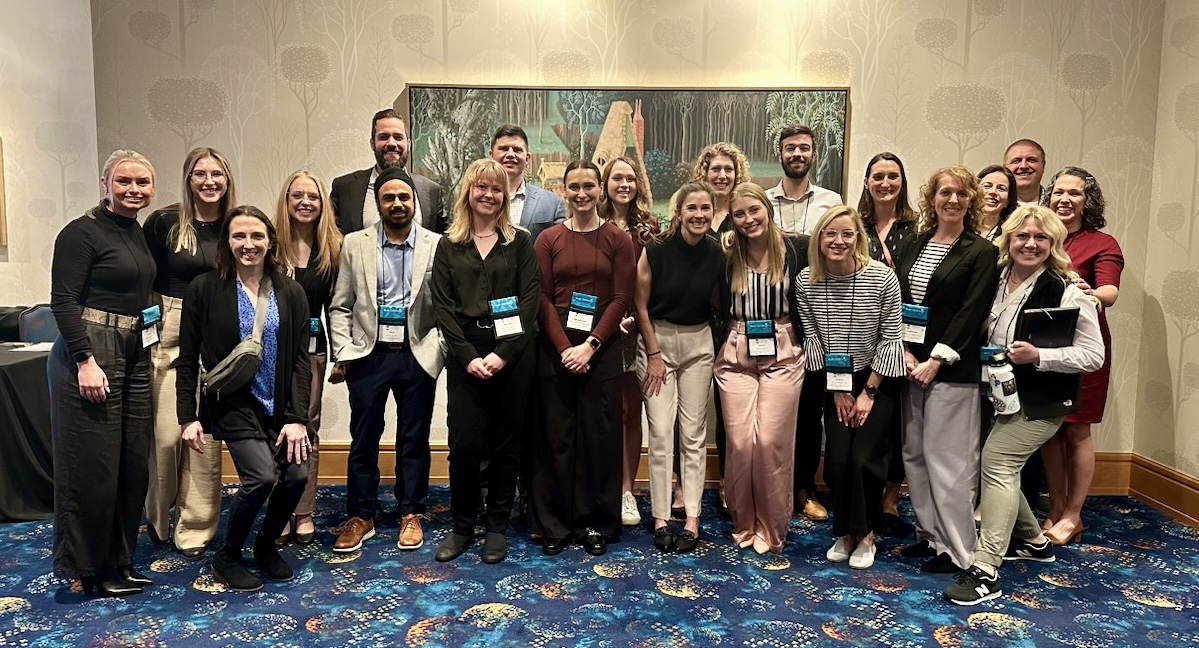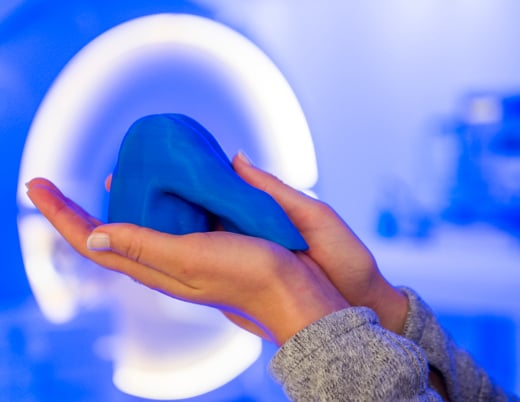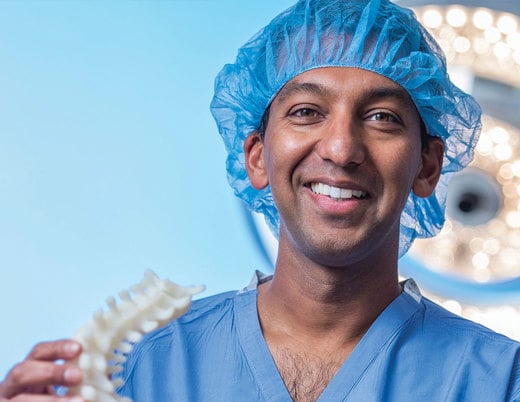For the 11th year, providers and researchers from across our Sports Medicine Institute attended the Pediatric Research in Sports Medicine Society (PRiSM) Annual Meeting. Each year, the PRiSM meeting brings together providers from across the country to collaborate and share research and education on pediatric athletics. A variety of topics are covered, from diagnosis and treatment of adolescent sports related injuries to performance optimization and overall athlete care.
This year, Children’s Colorado team members gave nine podium presentations and seven poster presentations on a range of subjects, including how to further improve patient care, research on mental health and wellness in young athletes and an in-depth discussion of a new concussion protocol. The Colorado Concussion Research Laboratory was particularly well-represented at the conference, with six podium presentations and three poster presentations that showcased unique projects related to the assessment and treatment of adolescents with concussion.

Whitney Hovater, BS, and Jay Albright, MD, in front of Whitney’s poster entitled “One Year Outcomes of Patients Treated with All-Soft-Tissue Quadriceps Tendon Autograft Versus Quadriceps Tendon Autograft With Patellar Bone Plug: A Patient-Blinded Pilot Randomized Control Trial.”
Multidisciplinary collaboration at PRiSM
PRiSM is a multidisciplinary group of athletic trainers, primary care sports medicine physicians, physical therapists, orthopedic surgeons, research scientists, musculoskeletal radiologists, sports nutritionists, nurse practitioners and sports psychologists that are committed to the care of young athletes. Although research on pediatric sports injuries and conditions has long been limited, PRiSM provides a collaborative environment for research to be shared and broader education among a large number of providers.

For the last year, our Sports Medicine Research Director, David Howell, PhD, ATC, was President of PRiSM. As a dedicated researcher and the Director of the Colorado Concussion Research Laboratory, Dr. Howell is not only a leader in the concussion space, but also contributes valuable insights to many of the Children’s Colorado presentations during the annual conference.
After the conclusion of the conference, Dr. Howell reflected on his time leading the organization and shared why PRiSM is important to advancing research in sports medicine.
Q: What led you to become involved in PRiSM and pursue a leadership role?
The mission of PRiSM is to improve interdisciplinary collaboration in the field of pediatric and adolescent sports medicine. This aligns with my personal research mission and has allowed me to interact and collaborate with many other top researchers in the field over the past decade. I firmly believe that through the perspective of many people with a variety of backgrounds, the rigor of our research gets stronger. PRiSM embodies this idea.
I have been fortunate to serve in a variety of different roles within PRiSM. When I was approached about a leadership role as vice president (and subsequently, president), I was excited to contribute to the growth of this society.
Q: Why do you think PRiSM is important to providers in the orthopedic and sports medicine space?
The unique perspective of an interdisciplinary set of clinicians and researchers provides the ability to view research questions and collaborations from a variety of perspectives. As most societies are geared towards a specific specialty, PRiSM brings together individuals with different backgrounds and areas of expertise to team up and address the most pressing challenges in the pediatric sports medicine area.
Q: What are you most proud of from your year as president of PRiSM?
I was able to lead efforts related to a three-year strategic plan that PRiSM leadership had developed at the start of 2023. Among the many things we have accomplished thus far, we were able to develop a plan to restructure one of our key member initiatives: Research Interest Groups, or RIGs. These are topic-focused collaborations of PRiSM members who team up to conduct multidisciplinary studies. In support of PRiSM’s ongoing growth, we developed a more flexible and supportive plan to reduce barriers to accessing and being involved in RIG projects across 16 different topic areas where multidisciplinary sports medicine research can thrive. We also continued our NIH-funded trainee travel grant award program, which allows funding for student and trainee PRiSM members to come to the meeting and present their work. This was our second year, and it was a highlight of the Annual Meeting.
Q: How does being involved in PRiSM help your research?
It allows us to be a part of an interdisciplinary and national group that’s working toward similar goals. By attending the conference, we can connect with other top researchers in the field and develop new ideas for large-scale research projects that can be done more efficiently and with rigorous findings that reflect not just those children seen in Colorado, but also across the United States.
Q: What was your biggest takeaway from this year’s meeting?
Our Children’s Colorado team is incredibly bright and talented! I am thrilled that we are working to address the most pressing needs and highest research priorities within pediatric sports medicine with others from across the United States on multi-site collaborations. While challenges related to ensuring equity and representation in research still exist, the multidisciplinary focus of PRiSM has an eye toward addressing these challenges across all the areas currently being studied.





 720-777-0123
720-777-0123










